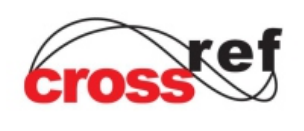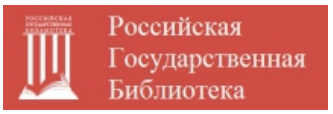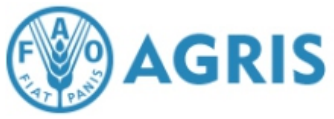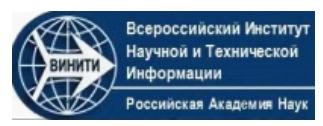The role of artificial intelligence technologies in digital transformation of Russian production
N.A. Rebus, I.G. Blagoveshchenskiy, O.V. Ratanova, F.A. Mastyaev
Upload the full text
Abstract: The digital transformation of a business means the digitization of many processes in an enterprise, i.e. it assumes the implementation of processes using computer technology and IT technologies. At the same time, it is important to organize the effective integration of existing processes in the enterprise with modern IT technologies. Such integration may concern not only production, but also other areas of human activity. Of course, many industries have been automated to varying degrees before, but the advent of artificial intelligence (AI) can smooth out the difference between industries with varying degrees of automation and optimize processes, even if some of the fields of activity do not involve the use of AI. Nevertheless, the process of digitalization in the vast majority of cases will accelerate decision-making if AI systems are used, in particular a digital twin. This optimizes data collection, which will allow them to be used to create models of objects or systems. In the future, the model will be used to analyze and optimize work without the physical presence of an object. All of the above determines the relevance of the topic of determining the role of artificial intelligence in the transformation of Russian business. In this article, the authors reflect on the problem “What is needed for the development of new data analysis technologies in production? And how can we improve the data environment?” The article provides an overview of the history of the use of artificial intelligence in business. The weaknesses of using artificial intelligence technologies are discussed. An attempt is being made to answer the question of what needs to be done today so that an enterprise or organization can take a leading position tomorrow.
Keywords: artificial intelligence, digital twins, big data, machine learning, machine learning model
For citation. Rebus N.A., Blagoveshchenskiy I.G., Ratanova O.V., Mastyaev F.A. The role of artificial intelligence technologies in digital transformation of Russian production. News of the Kabardino-Balkarian Scientific Center of RAS. 2025. Vol. 27. No. 2. Pp. 37–54. DOI: 10.35330/1991-6639-2025-27-2-37-54
References
- Doguchaeva S.M. Innovative development of artificial intelligence and machine learning in the modern economy. RISK: Resursy, Informatsiya, Snabzheniye, Konkurentsiya [RISK: Resources, Information, Supply, Competition]. 2019. No. 1. Pp. 136–138. EDN: ROCRDW. (In Russian)
- Murzagalina G.M., Kitabanov A. The experience of using artificial intelligence in production to increase productivity and staff safety. Moskovskiy ekonomicheskiy zhurnal [Moscow Economic Journal]. 2022. Vol. 7. No. 12. Pp. 474–482. DOI: 10.55186/2413046Х_2022_7_12_715. (In Russian)
- Polozhevets E.V., Sykeeva I.N. From the history of the use of artificial intelligence. Vestnik obrazovatel’nogo konsortsiuma “Srednerusskiy universitet”. Informatsionnyye tekhnologii [Bulletin of the educational consortium Central Russian University. Information technology]. 2024. No. 1(23). Pp. 52–54. (In Russian)
- Stefanova N.A., Sidorova Yu.V. The use of artificial intelligence for managerial decision-making. Voprosy ustoychivogo razvitiya obshchestva [Issues of sustainable development of society]. 2020. No. 2. Pp. 331–334. DOI: 10.34755/IROK.2020.45.31.021. EDN: INDGSX. (In Russian)
- Arzamasov Yu.G. An integrated approach to the definition of artificial intelligence Vestnik VGU [Bulletin of the VSU]. Series: Law. 2022. No. 3(50). Pp. 242–262. (In Russian)
- Blagoveshchenskaya M.M., Blagoveshchensky I.G., Nazoikin E.A., Krylova L.A. Method of automatic assessment of the quality of food products based on the theory of artificial neural networks. The food industry. 2015. No. 2. Pp. 42–45. EDN: TKLVUN. (In Russian)
- Frolikov A.V., Trubin A.E., Aleksakhin A.N., Nechaev A.M. Prospects and risks of using artificial intelligence technology in corporate governance. Vestnik Rossiyskogo ekonomicheskogo universiteta imeni G.V. Plekhanova [Bulletin of the Plekhanov Russian University of Economics]. 2025. Vol. 22. No. 1(139). Pp. 198–208. DOI: 10.21686/2413-2829-2025-1-198-208. (In Russian)
- Rylov S.A., Kholopov V.A., Blagoveshchenskiy I.G., Nazoikin E.A. Digital twins of automation systems based on the industrial Internet of Things using virtualization technologies. Instrumentation. 2022. No. 11(269). Pp. 27–31. EDN: HMVGYA. (In Russian)
- Aleksakhin A.N., Alymenko M.A., Anisimov A.Yu. et al. Prikladnyye aspekty primeneniya iskusstvennogo intellekta i neyrosetevykh tekhnologiy [Applied aspects of artificial intelligence and neural network technologies]. Moscow: Obshchestvo s ogranichennoy otvetstvennost’yu “Rusayns”, 2024. 176 p. ISBN: 978-5-466-07072-9. EDN: DJPAKM. (In Russian)
- Anisimov A.Yu., Trubin A.E., Aleksakhin A.N. et al. Problemy i perspektivy vnedreniya informatsionnykh tekhnologiy v protsess podgotovki kadrov dlya tsifrovoy ekonomiki [Problems and prospects of introducing information technologies into the process of personnel training for the digital economy]. Moscow: Obshchestvo s ogranichennoy otvetstvennost’yu “Rusayns”, 2023. 170 p. ISBN: 978-5-466-03248-2. EDN: XHZQNI. (In Russian)
- Gabalin A.V., Grebenyuk G.G., Dorri M.Kh. et al. Modeli i metody analiza ustoychivosti kriticheskoy infrastruktury s primeneniyem tsifrovogo dvoynika [Models and methods for analyzing the stability of critical infrastructure using a digital twin]. Sbornik nauchnykh trudov XXV Rossiyskoy nauchnoy konferentsii “Inzhiniring predpriyatiy i upravleniye znaniyami”. Vol. 1. Moscow, 2022. Pp. 70–77. EDN: GPLSSR. (In Russian)
- Zvonov A.O., Zakharov A.V. Ispol’zovaniye neyronnoy seti dlya avtomatizatsii proyektirovaniya tipovykh tekhnicheskikh ob”yektov [Using a neural network to automate the design of typical technical facilities]. V sbornike: Informatsionnyye tekhnologii v nauke i proizvodstve [Information technologies in science and production]. Materialy IX Vserossiyskoy molodezhnoy nauchno-tekhnicheskoy konferentsii. Omsk, 2022. Pp. 116–121. EDN: OINXLZ. (In Russian)
- Potyag V.S. Primeneniye iskusstvennogo intellekta kak instrument povysheniya ekonomicheskoy effektivnosti promyshlennogo predpriyatiya [The use of artificial intelligence as a tool to increase the economic efficiency of an industrial enterprise]. Sbornik nauchnykh trudov “Teoriya i praktika upravleniya v sovremennykh usloviyakh”po itogam III Mezhdunarodnoy nauchno-prakticheskoy konferentsii. St. Petersburg, 2024. Pp. 414–417. EDN: GZAQJI. (In Russian)
- Rebus N.A. Proyektirovaniye i realizatsiya komponentov intellektual’noy programmnoy sredy [Design and implementation of components of an intelligent software environment]. V sbornike: Rol’ biznesa v transformatsii obshchestva – 2023 [The role of business in the transformation of society – 2023]. Sbornik materialov XVIII Mezhdunarodnogo kongressa (mezhdunarodnoy nauchno-prakticheskoy konferentsii). Moscow, 2023. Pp. 353–357. EDN: ZOEDLJ. (In Russian)
- Rylov S.A., Blagoveshchenskiy I.G., Kuchumov A.V. et al. Arkhitekturnaya kontseptsiya razrabotki sovremennykh tsifrovykh dvoynikov na baze promyshlennogo interneta veshchey [An architectural concept for the development of modern digital twins based on the industrial Internet of Things]. Sbornik nauchnykh dokladov “Fabrika budushchego: perekhod k peredovym tsifrovym, intellektual’nym proizvodstvennym tekhnologiyam, robotizirovannym sistemam dlya otrasley pishchevoy promyshlennosti” III Mezhdunarodnoy spetsializirovannoy konferentsii-vystavki. Kursk, 2022. Pp. 284–293. (In Russian)
Information about the authors
Natalia A. Rebus, Associate Professor of the Department of Digital Economics, Moscow Financial and Industrial University “Synergy”;
125315, Russia, Moscow, 80 Leningradsky avenue, building E;
Russian Biotechnological University (ROSBIOTECH);
125080, Russia, Moscow, 11 Volokolamsk shosse, building A;
nrebus@synergy.ru, ORCID: https://orcid.org/0000-0002-3086-4200, SPIN-code: 6143-4370
Ivan G. Blagoveshchenskiy, Doctor of Engineering Sciences, Professor of the Department of Computer Science and Computer Technology of Food Production, Russian Biotechnological University (ROSBIOTECH);
125080, Russia, Moscow, 11 Volokolamsk shosse, building A;
drbl@bk.ru, ORCID: https://orcid.org/0000-0002-7862-680X, SPIN-code: 7057-5071
Olga V. Ratanova, Associate Professor of the Department of Digital Economics, Moscow Financial and Industrial University “Synergy”;
125315, Russia, Moscow, 80 Leningradsky avenue, building E;
rov75@yandex.ru, ORCID: https://orcid.org/0000-0001-9870-4636, SPIN-code: 8543-6319
Filipp A. Mastyaev, Senior Teacher of the Department of Digital Economics, Moscow Financial and Industrial University “Synergy”;
125315, Russia, Moscow, 80 Leningradsky avenue, building E;
raven128@yandex.ru, ORCID: https://orcid.org/0000-0002-8012-8594, SPIN-code: 5209-2449










